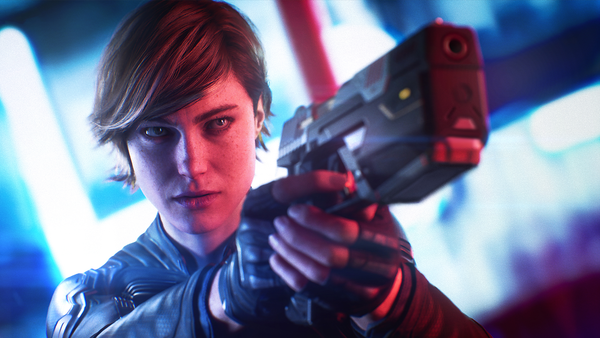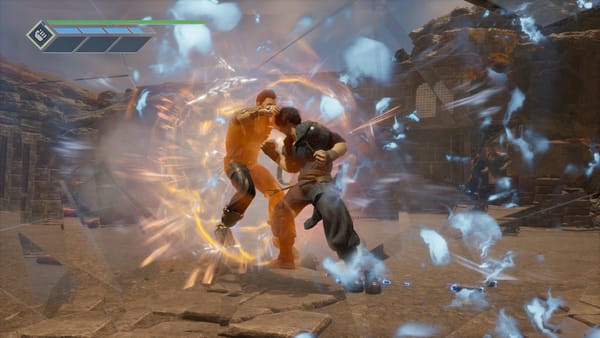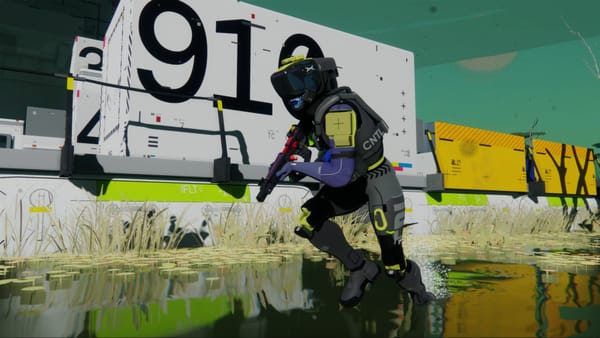#56: Odd future
I’ve avoided writing about NFTs in Hit Points so far. This is in part because I did some work for a blockchain-gaming startup a while ago, and needed a bit of distance before I could think clearly, fairly and personally about it. There’s also the fact that, despite doing some work for a blockchain-gaming startup a while ago, I’m still not entirely sure I understand it.
There’s the whole environmental side of things, too, which I think is pretty clearly bad but is already so loaded with caveats and counter-arguments that I cannot speak with enough authority to avoid the Gorgonesque gaze of the laser-eyed crypto dullards whose devotion is so religious, and vocabulary so impenetrable, that they might as well be speaking in tongues. But when I stop and think about what NFTs could bring to the sorts of games we play today, I simply do not buy the argument that they will change things for the better.
There is a growing acceptance that NFTs, and blockchain technology more broadly, are on the cusp of mainstream success in games; that because they are innovative and disruptive, they will inevitably herald the biggest paradigm shift in gaming since the rise of mobile and free-to-play. Certainly the amount of VC funding sloshing around the space lately would appear to back that up. But then investors would be into this, right? They are in the business of speculation, of spending money to make more money back, and the more interest there is in something, the more they stand to make. That is the inherent promise of NFTs, especially while they are new. They will never be cheaper than they are at the beginning, and there is no such thing as a bad investment.
An NFT’s value comes from its scarcity — there is only one, or a dozen or a thousand, of some new thing — and I’m not sure that having a fixed amount of a game’s most desirable items is particularly healthy. This week, a new NFT character skin in the blockchain game Blanko’s Block Party sold out in 26 seconds. This may on the face of it appear as proof of concept, and its developer has certainly presented it as such. But what happens next? The price goes up, and keeps going up the more it changes hands. That is great, for those who get in early, and for the developer who gets a cut of every sale. But who are these people? Are they huge fans of the game, hungry for a fresh way to express themselves while they play? Do they particularly love the art, or perhaps the artist? Or are they just speculators with a stash of crypto who see this as this week’s way to turn an easy profit? That’s a rhetorical question, in the majority of cases at least. I don’t think it says much for the health of Blanko’s Block Party, much less pointing at a brighter future for the industry as a whole.
What does scarcity give to a player community? Having a fixed supply of something is only good if you get lucky at the drop — if you complete a purchase within 26 seconds of an item’s release — or want and can afford to buy one on the secondary market. It is fine if you are in this to make money, I suppose. But if you want to play the game? I think this sort of thing makes more people feel bad than feel good, and that rarely fosters a healthy community. Look how pissed off people are at Sony or Nvidia because they can’t buy a console or graphics card, because the scalpers clean out every restock. Then apply that to all your favourite games, and ask yourself for how long you’d continue to play them.
Another term I’m seeing more and more is ‘play to earn’, pointing as it does towards our supposedly inevitable future lives in the metaverse. I saw a forum post the other day in which someone was defending this idea, saying something like, ‘Just wait until your kids are making pocket money doing chores in mobile games!’ as if that was somehow a good thing. I mean, sure, but actually: no? That does not sound good at all? For one thing, I would like my kids to have something resembling a childhood before introducing them to the crushing reality of late-stage capitalism. Besides, a lot of games already feel quite enough like jobs as it is, thanks — training us to be good little workers, ticking off repetitive tasks for a small, but still desirable or necessary, reward. Attaching some slender monetary value to our menial farming and grinding is only going to make things worse.
I do believe there’s merit in blockchain games as a concept. The idea that someone artistically minded — the sort of person that makes fanart for their favourite game, or makes a cool little thing in Dreams — can monetise their work, and so turn a hobby into a career, is undeniably cool. There is some intriguing potential for game design using smart contracts, too. And I think that most of the business models that underpin games today are essentially broken, to varying degrees, and that something needs to change. And hey, if I could really pull down six figures while playing Destiny 2 all day, I suppose I’d look into it.
But that’s not what’s going to happen, at least for most of us. Looking solely at the positive potential of this technology involves a degree of mental gymnastics that only those with a vested interest and nothing to lose are capable of. I am sure some people reading this will dismiss it as just another old man shouting at clouds. But that to me seems fair game when so many people have their heads in them.
MORE!
- I remain unconvinced by Netflix’s move into games, but I can certainly see the logic in its acquisition of Night School Studio, developer of Oxenfree and Afterparty. It has also expanded its mobile-game offering, launching it in Italy and Spain, and adding a handful of new titles.
- Barely a week after it emerged that the US Equal Employment Opportunity Commission was investigating Activision Blizzard’s misconduct scandal, Activision has made a settlement offer of $18 million. Small potatoes for a company with a market cap of almost $60 billion, and hardly an incentive for the publisher to properly mend its ways.
- More from China: minors are now forbidden from livestreaming games. Might as well just chain them all to radiators at this point, eh. Poor sods.
- Microsoft is to open up its Windows Store to thirdparty marketplaces, with Epic Games and Amazon the first to arrive.
- Against all odds, Amazon has finally shipped a game and it seems to actually be popular: New World had over 700,000 concurrent players on launch day. All is not entirely rosy, however. The game is getting review bombed over its queueing times, because apparently the company behind AWS is somehow, like, struggling for server space.
Ah, that feels better. I’m now off to grind out an exotic catalyst in Destiny 2 for no money whatsoever. As always, if you’ve enjoyed today’s edition, do please give it a share, and kindly consider a paid subscription if you’re not already signed up. Catch you Friday!





